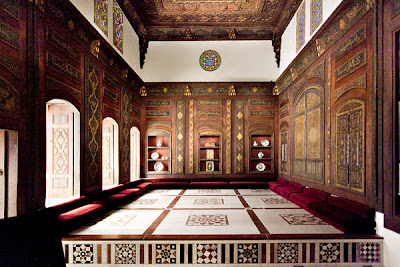 The third season of Wyoming Chronicle debuts with an interview of Naomi Shihab Nye, an Arab-American poet, talks to Wyoming Chronicle about peaceful ways to resolve conflicts in the Middle East, with a backdrop of fierce debate in the United Nations over Palestinian statehood.
The third season of Wyoming Chronicle debuts with an interview of Naomi Shihab Nye, an Arab-American poet, talks to Wyoming Chronicle about peaceful ways to resolve conflicts in the Middle East, with a backdrop of fierce debate in the United Nations over Palestinian statehood. In a Chronicle short feature, Sen. Malcolm Wallop, who passed away in September, is remembered.
Nye’s Palestinian grandmother and father lost their home in Jerusalem in the 1948 Arab-Israeli War, in which they were not participants. Nye was born in St. Louis in 1952, and now lives in Texas. An author of poetry and young adult books, Nye recently toured Wyoming as part of a campaign by the Wyoming Council for the Humanities for civility in public discourse.
A keen observer of the Arab Spring and the turmoil in the Middle East, Nye has used her writing to provide a human face to the oft-caricatured Arab. While she provides insights into the despair that leads to violence in the Islamic world, she has also taken a strong stand against terrorism, expressed in her widely published “Letter to Any Would-be Terrorist.”
Above all, though, Nye is a talented, award-winning poet, with books like “19 Varieties of Gazelle”, and the soon-to-be-published “Transfer.” She has also written a young adult book, “Habibi.”
About her work, the poet William Stafford has said, “her poems combine transcendent liveliness and sparkle along with warmth and human insight. She is a champion of the literature of encouragement and heart. Reading her work enhances life.”
Nye has received awards from the Texas Institute of Letters, the Carity Randall Prize, the International Poetry Forum, as well as four Pushcart Prizes. She has been a Lannan Fellow, a Guggenheim Fellow, and a Witter Bynner Fellow. In 1988 she received The Academy of American Poets’ Lavan Award, selected by W. S. Merwin.
Her poems and short stories have appeared in various journals and reviews throughout North America, Europe, and the Middle and Far East. She has traveled to the Middle East and Asia for the United States Information Agency three times, promoting international goodwill through the arts.
She currently lives in San Antonio, Texas. She was elected a Chancellor of the Academy of American Poets in 2010.
LINKS AND OTHER MATERIAL ON NAOMI SHIHAB NYE
- Naomi Shihab Nye reading and talking about inspiration and poetry
- An interview with Naomi Shihab Nye by Rachel Barenblat
- “Lights in the Windows” an essay by Naomi Shihab Nye
- Transcript of a Bill Moyers interview with Naomi Shihab Nye, 10/11/02
- Letter from Naomi Shihab Nye, Arab-American Poet, To Any Would-Be Terrorists
























